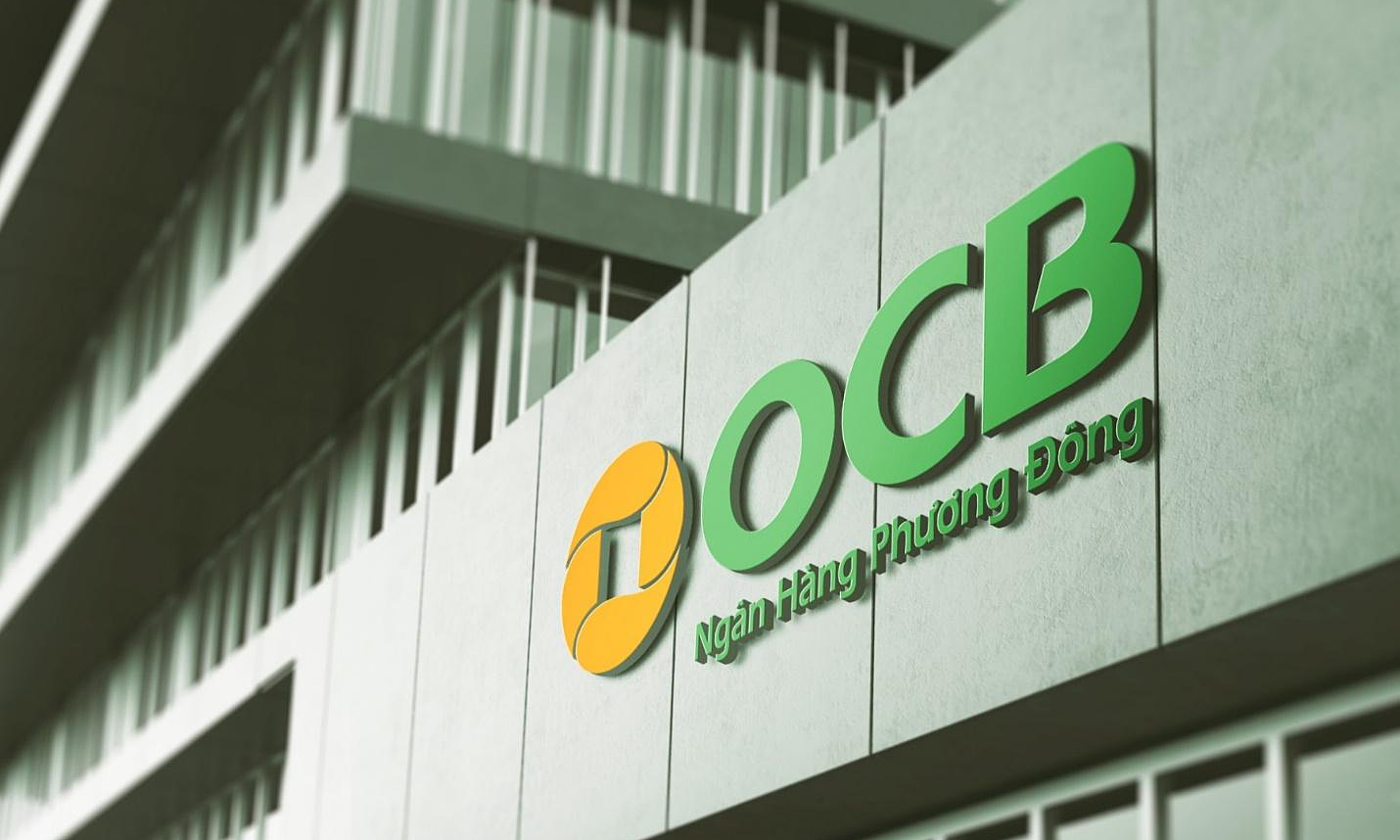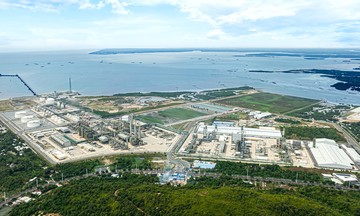This information was revealed in the bank's recently published Q2 financial report. Total net revenue for Q2 reached 2,642 billion VND, a 16.3% increase compared to the same period last year. Net interest income reached 2,179 billion VND, up 9.7% due to expanded credit scale.
Non-interest income also improved, increasing 61.9% year-on-year and 321.5% compared to Q1, primarily from service activities and foreign exchange trading. Service income increased by 97.6%, equivalent to 146 billion VND, thanks to consulting services and other service fees. Foreign exchange trading income increased by 1,387.3% compared to the previous quarter, reaching 104 billion VND.
In the first 6 months of the year, OCB recorded a pre-tax profit of 1,892 billion VND. A bank representative stated that this result reflects the effectiveness of the strategic business adjustments implemented since 2024.
 |
Bank headquarters. Photo: OCB |
Bank headquarters. Photo: OCB
OCB continues to strengthen its strategy of focusing on individual customers, small and medium-sized enterprises (SMEs), and startups. The bank provides capital, promotes green finance and digital transformation, creating a comprehensive ecosystem for customers in line with Resolution 68 of the Politburo on the development of the private economy.
In the individual customer segment, the rate of transactions via digital channels has reached a high level and experienced stable growth as of 30/6. The number of transactions on OCB Omni, the bank's digital platform, increased by 97%, CASA by 28%, and online savings deposit sales by 30% compared to the same period in 2024.
For corporate clients, the bank is promoting the implementation of its Open Banking platform. Open API integration helps businesses save operating costs, reduce processing time, and increase data reconciliation efficiency. As of mid-year, the number of transactions via Open API increased by 57.9%, transaction value increased by 184.8%, and average CASA increased by 31.8%.
In addition, the bank continues to promote capital provision for green projects, focusing on areas such as renewable energy, green buildings, smart agriculture, and other sustainable development projects. As a result, outstanding green credit at the bank continued to increase by more than 10% in the first 6 months of the year.
The bank controlled operating costs well, with an increase of only 0.7% in Q2 compared to the previous quarter, despite expanding its scale and investing in technology, aiming to build a comprehensive digital financial ecosystem for customers.
By the end of Q2, OCB's total assets reached 308,899 billion VND, a 10% increase from the beginning of the year. Outstanding loans in market one reached 190,789 billion VND, up 8.4%, and deposits in market one reached 153,940 billion VND, up 8.1%.
Outstanding SME credit also increased. For example, in 2024, outstanding SME credit increased by 51.7% compared to 2023. This year, outstanding loans continued to increase compared to the beginning of the year. OCB currently offers unsecured working capital loan products specifically for startups, focusing on cash flow, business model potential, and the operational capacity and experience of the founding team.
 |
Bank representatives introduce technologies to state leaders. Photo: OCB |
Bank representatives introduce technologies to state leaders. Photo: OCB
According to Pham Hong Hai, General Director of OCB, retail remains the bank's core strategy, but it also focuses on SMEs, especially startups. The bank considers this a segment with significant growth potential in the market. For startups, the bank offers specific credit policies. "We cannot stand outside the startup ecosystem. If startups are the new lifeblood of the economy, then banks must be the arteries carrying smart capital," said Mr. Hai.
Mr. Hai added that OCB is one of the first banks in Vietnam to provide medium and long-term unsecured loans to startups. This is a substantial amount, helping businesses gain additional financial resources for development over the next 5-6 years. Notably, the bank allows startups to disburse a large portion of the loan value for investment recovery, rather than just disbursing for new projects, allowing businesses to proactively and flexibly manage their capital flow effectively. OCB delves deeper into the structure and true potential of the business, seeking solutions for mutual understanding, building trust, and long-term cooperation.
According to the General Statistics Office, as of June, there were approximately 980,000 businesses nationwide, of which SMEs accounted for 97%, contributing over 45% of GDP, over 31% of total state budget revenue, and creating over 60% of jobs. This is a key force driving economic growth, contributing to social stability through job creation and innovation.
According to Mr. Hai, given this reality, OCB's focus on promoting private sector credit and leading flexible capital flows is expected to bring growth to the bank in the coming period.
Hoang Dan












